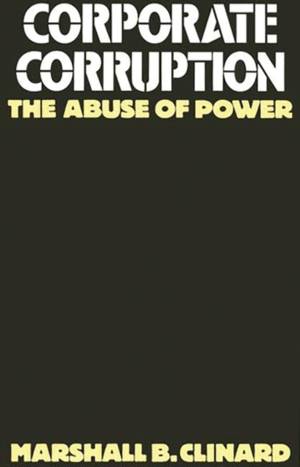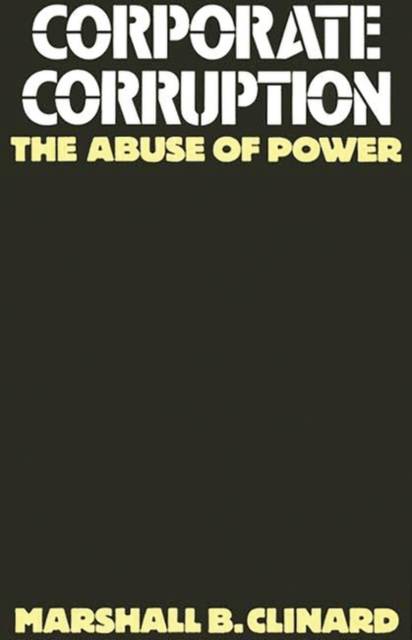
- Retrait gratuit dans votre magasin Club
- 7.000.000 titres dans notre catalogue
- Payer en toute sécurité
- Toujours un magasin près de chez vous
- Retrait gratuit dans votre magasin Club
- 7.000.0000 titres dans notre catalogue
- Payer en toute sécurité
- Toujours un magasin près de chez vous
Description
In recent years, the media have been full of stories about ethical decline. Illegal dealings have been uncovered in the banking and savings and loan industries as well as the highest levels of Congress and government administration. Even television evangelism has been seriously tarnished by scandal. Corporate Corruption is the first wide ranging book to turn the spotlight on the unethical and illegal behavior of America's giant corporations and their executives: the prestigious Fortune 500. While avoiding the undignified zealotry of tabloid muck-raking, this well-researched volume explores corporate abuse and examines the disparity between the facts of corporate misconduct and the glowing image that advertising and other media portray of these corporations.
Marshall Clinard identifies the auto, oil, pharmaceutical, and defense industries as the major offenders. He devotes a chapter to each of these areas in addition to chapters on corporate violence, corporate bribery, and a final discussion of how to correct these widespread abuses. Although their massive productive capacities and innovative powers have contributed immeasurably to the high standard of living that many Americans enjoy, far too often corporations have abused the public trust, the people who use their products, their own employees and stockholders, the environment, and even the Third World that they profess to help. From illegally disposing of hazardous waste to defiance of health and safety standards to price-fixing, corporate violations cost hundreds of millions of dollars and thousands of lives. The magnitude of their offenses becomes clear when one considers that a single corporate offense may run into millions of dollars in losses, while the average cost of a burglary is $600 and the average larceny $400. In some cases, the cost of a single case of corporate misconduct may exceed a billion dollars. Having published three earlier books on corporate misbehavior and having received two grants from the U.S. Department of Justice to make specific corporate studies, Clinard is well-qualified to bring insight, experience, and unblinking scrutiny to what he describes as a story that must be told. Corporate Corruption is a must for anyone concerned about the widespread breakdown of ethics in contemporary society and the role played by large corporations when they abuse their power. It is also of interest to persons involved in business management, complex organizations, criminology, general ethics, and, in fact, to any responsible customer.Spécifications
Parties prenantes
- Auteur(s) :
- Editeur:
Contenu
- Nombre de pages :
- 224
- Langue:
- Anglais
Caractéristiques
- EAN:
- 9780275934859
- Date de parution :
- 23-03-90
- Format:
- Livre relié
- Format numérique:
- Genaaid
- Dimensions :
- 181 mm x 233 mm
- Poids :
- 453 g

Les avis
Nous publions uniquement les avis qui respectent les conditions requises. Consultez nos conditions pour les avis.






